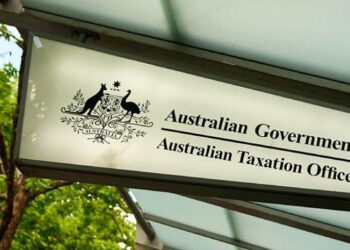Naz Randeria, director of Reliance Auditing Services, said while the super industry has largely welcomed the removal of plans to tax unrealised capital gains, the heart of the policy remains unchanged and the government is effectively looking to implement Australia’s first wealth tax.
“While the two-tiered model – increasing the tax on super earnings above $3 million to 30 per cent and above $10 million to 40 per cent – appears to target the wealthy and ultra-wealthy, it’s actually targeting the assets Australians have built over time through hard work, careful planning and abiding by government rules and regulations,” Randeria said.
“The fundamental structure of the policy is not only punitive, but it also acts as a disincentive to save and be self-sufficient in retirement.”
Randeria said despite thresholds now being indexed, the value of property and assets like gold continue to rise quickly and significantly, and she expects an increasing number of people will find themselves breaching the asset thresholds in the future.
“To use a schoolyard analogy it feels as if we’re telling the younger generation not to aim for top exam marks or first place in the running race because others around them might not do as well. That’s not fairness, it’s mediocrity,” she said.
“The policy is also flawed in its efforts to increase revenue for the government. Regardless of whether you agree with a 40 per cent tax rate for balances over $10 million, it essentially creates a ‘hard cap’. We will see changes in superannuant behaviour moving forward, including withdrawals from superannuation to other structures such as companies and discretionary trusts which are not currently taxed based on asset thresholds.”
Furthermore, she said superannuants will also consider restructuring of portfolios, delaying realisations and an avoidance of high-growth strategies to avoid being penalised.
“Industry has already seen this take place over the past two years ahead of the expected implementation of the original proposal,” she said.
“Driving capital out of Australia’s superannuation system is not only bad for the industry, but it’s bad for the economy more broadly and has longer term impacts on investment, innovation and economic growth.”
She added that if people change their behaviour to avoid the higher tax rates and withdraw funds from the super environment, the government will be unable to collect the forecast revenue.
“The concern then would be how the shortfall will be met, particularly if the precedent has already been set. Will we see such asset thresholds being introduced to family trusts, companies, and other investment structures where the effective tax rate is currently 30 per cent or less?” she said.
“For those who believe such suggestions are unlikely, I remind you that it was only a few short years ago that the idea of making wholesale changes to our superannuation system were also considered unlikely.”
Randeria continued that instead of “tinkering with flawed policy” the government should instead draw on the experienced and knowledgeable minds within the superannuation and professional services associations.
“These experts have guided millions of Australians through retirement planning over decades, and have an innate understanding of the system, its complexities, flaws, and genuine opportunities for improvement,” she said.
“However, advisers have largely been left in the dark over the last two years, and instead left to make long-term financial decisions based on unreleased government modelling.”
Finally, Randeria said the backflip on the Div 296 tax has raised other questions including why Treasury refused to release the assumptions and frameworks underpinning the revised tax.
“It appears that those designing both the original and revised policies don’t have a complete understanding of the complexity or long-term nature of superannuation planning,” she said.
“The super industry has also taken note of suggestions that the government’s original hardline rhetoric was strategic, and part of a broader political manoeuvre. In a corporate setting, the use of ‘strategic redirection’ would generally invite closer scrutiny, to ensure transparency and accountability. Yet, in this case it is once again the super industry that is left to make sense of a policy that has real-world implications for those planning their retirement.”



Taxing higher balance members at a higher rate is not a solution. This in fact gives opportunities to those who have over $3M to manage their investments – e.g. inside and outside of super – not contribute more for their own future etc
A marginal tax rate on income inside super on everyone would ensure a better outcome – say something similar to individual tax rates. Higher balances will be allocated more in public offer funds and will pay more tax and at a higher rate.
If you tax more in super – to only those who have over $3M – they will try and withdraw if they can (condition of release). But if higher income was taxed more – that looks fair and most of us will be willing to pay.
If I am over 60 and retired with $2M retirement phase – earn say 30% income (which I did last year) – I will pay no tax. $600,000 income which I will withdraw each year. Whereas someone with $5M who realized only $100,000 income will pay $30,000 tax. Next thing we will have deeming rates of income in super so that we can tax them more… Crazy!
If I have an SMSF – I can simply have a growth asset paying no income (say gold) and hence pay no tax. And if the Govt. thinks that they will control investments for these Trustees – we will have to re-write all the rules.
If TBC is all scrapped – and preservation age is dropped to say 50 years and super and individuals marginal tax rates are the same – everyone will contribute to $18,200 – at the moment not many with home loans, salary sacrifice. We will have a few more self funded retirees
In retirement $18,200 income will not be taxed – but everyone will pay some tax.
Our rules need a fresh look. Once fixed – don’t keep changing them.
And please, we need young migrants who will fund our growing number retirees who never saved for themselves – we have a housing crises, but only in major cities – not in the country side.
Those with over $3M – if you can withdraw – give it to your kids – they will thank you – and if you want to be really mean to them – NCC for them in your SMSF.
A hard superannuation cap solves so many issues.
I never dreamt that I would be where I am and diligently kept working and sacrificing and investing.
Then, I was enjoying work so much that I kept working longer than my prior goal which meant that I saved significantly more than the financial plan that ai created 35 years ago, which took me well past the $3m level in super.
But could I get it out? No. I had to retire to access the super, meaning I also had to sell my business and so much intellectual capital is now wasted, unless I take on mentoring or something I guess.
If there was a hard cap, I would not have been forced to sell my business and potentially “waste” my experience, just to access my own savings to do other things.
I am currently loving retirement and am looking after myself, mentally, physically snd emotionally, as I have never been able to in the past, I am not complaining in the least, but it does seem a shame to not share my business experience and help others more. Maybe that time will come, but I am currently nurturing myself first for a change, and that feels great.
A huge bonus is that the red and green tape in my life is almost non-existent.
A hard cap saves so much stress all round and simplifies everything markedly.
They will just keep chasing the (your) money. Put in a Gard cap, reduce immigration (enough uber drivers thanks), use coal to bring back cheap power and be a happy and productive country
“She added that if people change their behaviour to avoid the higher tax rates and withdraw funds from the super environment, the government will be unable to collect the forecast revenue.”
Spot on.
Having paid what I consider to be a substantial and more than adequate amount of tax over the years – and saved a good super balance – let me say that out of abject perversity I’ll be paying no Div 296.
I’ll be drawing down my super and putting that balance into a zero interest cheque account. No interest earned – no tax paid.
Whereas before I was paying 15% tax on some of my super fund, I’ll now be paying zero.
2017 was a watershed moment in Australian Superannuation.
A cap of $1.6M was placed on retirement pension accounts. Investment earnings on these accounts are tax free. The $1.6 can grow to whatever and all the earrings will still be tax free. It’s a fantastic concession.
Prior to 1 July 2017, the amount was unlimited. People had like $30M of investments super pensions paying zero income tax. That’s not sustainable.
The only obligation for the government is to provide a secure retirement. It’s not for your kids or your Estate, it for YOUR retirement only. You would never get through those kinds of monies in your remaining lifetime after retirement.
This rationale that not paying tax doesn’t hurt anyone is just plain stupid, and you are just bludging off the rest of us taxpayers with obscene super balances.
The only other reform needed is to put a similar cap on accumulation balances. Once it reaches a certain point, that should be it, and contributions should be over for you (and your employer). It could then continue to grow unlimited with only 15% tax on investment income.
That’s good enough for the lot of you and more than discharges the countries constitutional obligation to provide an old age pension.
The only other legislative change needed to to allow non retired people to pull excess super out and get under said limits.
Fat cats need to just stop whining about Div 296. You’ve already sucked plenty of tax concessions from the rest of us. Now we need that back for roads, bridges & hospitals.
Thank you for your poorly argued case, Ms McManus of the ACTU. Oh, and you forgot to mention to pay for the Net Zero subsidy boondoggle.
Message to Chalmers, Treasury and the ATO – KISS (Keep it Simple S….d).
It is contradictory to bring in legislation that ensures that low income earners do not pay more tax in super than they do outside of super (as part of this policy is set to change the LISTO thresholds), yet, by imposing a 40% tax on some superannuation income, the government will be taxing some people more in superannuation than outside it.
Possibly the easiest solution is a hard cap after which assets need to be moved from the super system with the option of topping up if losses bring them under the cap.
It is all just a big mess. Happy days for Treasury and the ATO. They seem to have as their top priority goal, to make legislation as difficult as possible, so that if push comes to shove, anyone and everyone will have fallen foul, making their fund non-compliant. Then they can come through and take far more.
A hard cap is so simple and so obvious. Only debate is what level is the hard cap. I say 2x TBC to cover/protect against major market corrections
It appears the Government is not prioritising fairness, but rather urgently seeking revenue—and superannuation has become a major target. They frequently release flawed regulations, causing confusion and concern, only to later revise them with alternatives that seem more reasonable but are still far from acceptable. This tactic resembles the approach of imposing extreme measures initially, then retreating slightly to make the final outcome more palatable.
Australia is currently facing serious challenges: a housing crisis exacerbated by high immigration, and growing defence needs amid limited financial resources. In this environment, it’s inevitable that the burden will fall on the wealthy. The Government will continue to find ways to extract funds, carefully choosing methods that minimise political fallout ahead of elections.
The introduction of the $1.6 million transfer balance cap and the taxation of earnings in accumulation phase already imposed a 15% tax on higher super balances. In my view, superannuation should be left alone—but unfortunately, that’s unlikely. I realise this perspective may sound pessimistic, but it reflects how I see the current trajectory.